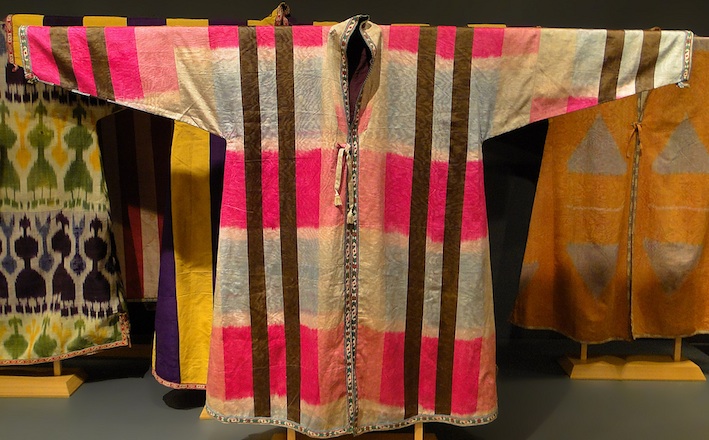Commentary on Isaiah 25:1-9
Isaiah 25:1-9 begins with a hymn of praise to a victorious God.
The opening phrases (“you are my God; I will exalt you”) allude to the ancient “Song of Sea” from Exodus, when the Lord led the people out of slavery in Egypt (see Exodus 15:2).
While a victorious God seems desirable, the image of a Divine Warrior will trouble some people — and perhaps it should, when the costs of warfare are so clear and the benefits so murky. Then again, the specific content of this hymn casts the matter in a different light. The Exodus is the model for God’s victory in more ways than one: In the same way as God delivered an oppressed people from an imperial power in Egypt, so too this passage expresses a special divine concern for the poor and the needy who need shelter from the ruthless.
The original historical context of this passage is the end of the Neo-Assyrian period, during the reign of Josiah, in the late 7th century. After more than a century of being a vassal to Assyria and paying dearly for the privilege of survival, Judah found itself free. It had nothing to do with that freedom — the Babylonians and Medes, far away in Mesopotamia, had conquered Assyria. However, the prophets knew that God worked through foreign empires as well, and they perceived the hand of God in these geopolitical events.
The ruined “city” (Isaiah 25:2) was an Assyrian outpost near Jerusalem, the remains of which has been discovered at Ramat Rahel. (The Assyrian practice of “filling the face of the earth with cities” is also attested by Isaiah 14:21.) The ruined city is contrasted with Zion (“this mountain,” Isaiah 25:6) both here and especially in 26:1’s reference to a “strong city.” These are examples of “Zion theology,” the idea that the Lord had had chosen Jerusalem as his holy city and its temple as his home, and would protect them. The tradition was already of significant antiquity by the late 7th century, and its appearances at this historical moment are understandable: It must have seemed like a miracle indeed to the Judahites that their city had survived while the capitals of the mighty Assyrian empire were falling!
In this passage and others in Isaiah, the Lord is portrayed not simply as victorious, but as a victorious king — one who has defeated and replaced human rulers. (Many psalms reinforce this image with the refrain “The Lord is king!”) This was a very characteristic rhetorical/theological tactic on the part of biblical authors. It is possible that it had its roots in the very origins of Israel, in the conflict between God and pharaoh portrayed in Exodus 1-15. In Josiah’s time, however, it took a significant new dimension with the propagation of the Deuteronomic law book, which was said to have been found in the temple by Josiah’s officials (2 Kings 22).
Among other goals, Deuteronomy explicitly subverted the Assyrian treaties that the kings of Judah were forced to sign. Esarhaddon issues a similar call for the vassals to love his heir: “You shall love Ashurbanipal … your lord, like yourselves.” But Deuteronomy responds: “You shall love the Lord your God with all your heart, and with all your soul, and with all your might” (Deuteronomy 6:5; compare to Leviticus 19:18, Matthew 22:30). The language of “love” had been used to express political faithfulness in diplomatic texts and letters throughout Ancient Near East history — now it took on a more explicitly theological weight.
In his role as the victorious sovereign, it also behooved the Lord to host a victory feast; this was also the expectation of a human king. The instances of banqueting as an expression of power within the Bible include the feasts hosted by Pharaoh (Genesis 40:20), Solomon (1 Kings 3:15; 8:62-66; 10:5), and Ahasueras (Esther 1). One can also point to examples of failed or thwarted attempts to claim power through table hosting, such as those of Nabal (1 Samuel 25:36) and Belshazzar (Daniel 5). Feasting could be a mechanism of inclusion or exclusion, like any social gathering that one hosts. The vision of Isaiah 25:6 is strikingly inclusive, including “all peoples”; it is the vision of a time of ambition and abundance.
The feast that the Lord hosts is no quotidian meal. Even the vocabulary used for the aged, strained wines and the bone marrow is uncommon. These were elite items for the culture, though the wine is probably something like what we are used to now; more commonly wine was served fairly young and with sediment from the lees. As for bone marrow, it is a sadly uncommon sight on the middle-class Western table; usually taken from the roasted femur of beef cattle, it is exquisite — far more flavorful even than butter.
The period of oppression and scarcity — along with the implicit threat that it might continue despite the removal of the Assyrians — is symbolized by death itself. For an ancient Near Eastern audience, the image of death being swallowed up would have been a delightful reversal, because Death was commonly deified in the Levantine world as a Great Swallower. This is most clearly exemplified in the Ugaritic Baal Myth, in which the eponymous god is temporarily defeated and swallowed by Death. It is also attested in Isaiah 5:14 (alluded to in last week’s lectionary commentary): “Sheol has enlarged its appetite and opened its mouth beyond measure; the nobility of Jerusalem and her multitude go down…” So Death, known to swallow all things, even gods, is now swallowed up by the Lord.
Many of the features of this passage, though grounded in ancient history and religion, have proven powerful and adaptable to readers ever since. Since the city is not explicitly named, interpreters have connected it to the fall of countless ancient cities, and certainly may have interpreted its message of God’s power to overthrow empires homiletically to apply to contemporaneous situations: the God of the Exodus continues to cast down the powers that oppose Him (Isaiah 2:11-17; 5:15; 10:33; 13:11; Revelation 18).
The victory over Death has also opened up interpretive horizons beyond even the imagination of the author. Everyone lives, to some degree, under the threat of mortality, and so the passage’s message can speak to anyone. To some, death looms more directly in their line of sight, and here the Gospel of the Old Testament may be particularly comforting: Death has no power over God; quite the opposite: “Sheol and Abaddon lie open before the Lord” (Proverbs 15:11). The divine defeat of Death is re-enacted in Revelation 20:14.
Of course, within Christian theology, God’s victory over death is enacted centrally in the cross of Jesus Christ. One of the classical Christian ways of understanding atonement is that Christ saves humankind by overcoming the power of death and evil. That model has been prevalent for centuries within Eastern Orthodoxy, and it gained popularity among a wider variety of Christians in the wake of Gustaf Aulén’s 1930 book, Christus Victor. This view of atonement is organically linked to a different view of sin — reversing the emphasis of the classical western idea that “the wages of sin is death” (Romans 6:23). Instead, the Orthodox have noticed more than other traditions the significant biblical witness to the idea that death is the cause of sin, not the other way around.
One of the primary proof texts for this view of sin and death is Hebrews 2:14-15, which says that through his death and resurrection, Jesus freed “those who all their lives were held in slavery by the fear of death.” Drawing on that passage, John Chrysostom preached, “He who fears death is a slave and subjects himself to everything in order to avoid dying… [But] he who does not fear death is outside the tyranny of the devil.”1 This understanding, however, remains distinctly undervalued among Western Christians, especially Protestants.
The historical, political, existential, and theological connections of this passage may appear to lead off in different directions, but in reality they are part of a larger whole: It assumes that there is no true life without human justice, and justice is harder to come by where political structures are inimical to it. Conversely, where life flourishes, death loses some of its sting. The work of ensuring that life can flourish within an environment of God’s shalom is thus participation in the divine defeat of death.
Notes
1. John Chrysostom, Homily IV (on Hebrews 2), par. 6.


October 15, 2017